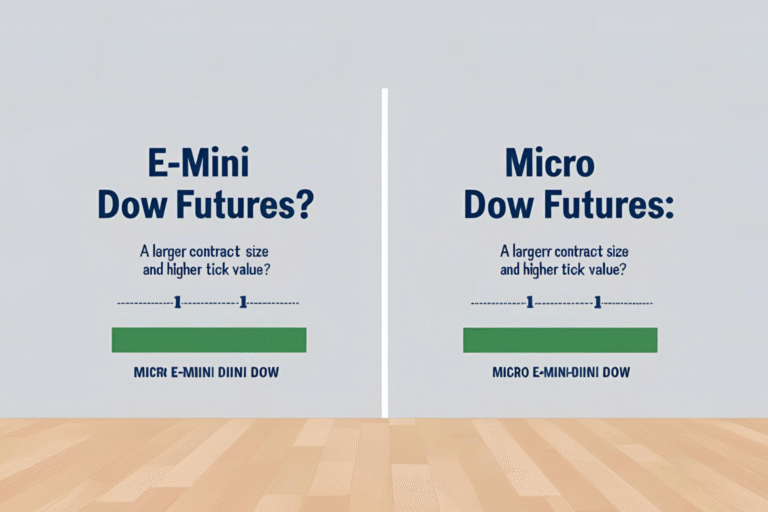Futures vs Stocks vs Options: Key Differences Explained
Introduction
If you’re just getting started in trading or investing, you’ve likely heard about futures, stocks, and options. But what exactly are they, and how do they differ? In this beginner’s guide, we’ll break down the key distinctions between futures vs stocks vs options, so you can understand which one might be right for your goals and risk tolerance.
What Are Stocks?
Stocks represent ownership in a company. When you buy a stock, you’re purchasing a small part of that business.
Key features:
- No expiration date
- You can hold for the long term
- May receive dividends
- Traded during regular market hours
Example: Buying 10 shares of Apple makes you a partial owner of the company.
What Are Futures?
Futures are contracts to buy or sell an asset (like the Dow index or gold) at a future date and agreed-upon price. They are commonly used to speculate on price movement or hedge against risk.
Key features:
- Set expiration dates
- Traded with leverage
- Settled daily (mark-to-market)
- Suitable for short-term and professional trading
Example: Trading Dow futures lets you speculate on the movement of the entire DJIA index without owning any stocks.
What Are Options?
Options are contracts that give the buyer the right, but not the obligation, to buy or sell an asset at a specific price within a set time.
Key features:
- Two types: Calls (buy) and Puts (sell)
- Limited risk for buyers
- Can expire worthless
- Complex pricing (depends on volatility, time, and strike price)
Example: A call option on Tesla stock allows you to buy it at a set price before expiration, even if the market price rises.
Futures vs Stocks vs Options: Side-by-Side Comparison
| Feature | Futures | Stocks | Options |
|---|---|---|---|
| Ownership | No | Yes | No |
| Leverage | Yes | No (unless using margin) | Yes (implied) |
| Expiration | Yes | No | Yes |
| Risk Level | High | Moderate | Varies (can be high or limited) |
| Use Case | Speculation/Hedging | Long-term investing | Directional bets or hedging |
| Market Hours | Nearly 24/5 | Regular hours (9:30–4 EST) | Regular + after-hours (limited) |
| Complexity | Medium | Low | High |
Which Should You Choose as a Beginner?
- Choose Stocks if:
- You want to build long-term wealth
- You prefer stability and low complexity
- Choose Futures if:
- You want to trade short-term moves
- You’re okay with higher risk and leverage
- Choose Options if:
- You want to control risk with defined strategies
- You’re ready to learn complex pricing models
How They Can Work Together
Many experienced traders use a combination:
- Stocks for long-term investing
- Futures for short-term speculation or hedging
- Options for strategic positions or income (like covered calls)
Conclusion
Understanding the difference between futures vs stocks vs options is key to choosing the right path in the financial markets. Stocks are great for long-term growth, futures for active speculation, and options for flexibility. Start by learning one at a time, practice on paper or demo accounts, and expand as your confidence grows.
FAQs
Q1. Which is safer for beginners—futures, stocks, or options?
Stocks are the least risky for beginners. Futures and options carry higher risk and require more knowledge.
Q2. Can I trade all three in one brokerage account?
Yes. Most full-service brokers offer access to stocks, futures, and options within the same platform.
Q3. Do I need more capital to trade futures?
Futures require margin, which means you need less upfront capital but more caution due to leverage.
Q4. Are options more flexible than futures?
Yes. Options offer many strategies with different risk-reward profiles, but they’re more complex.
Q5. Can I combine these products in a portfolio?
Absolutely. Many traders use all three based on their market outlook and goals.

